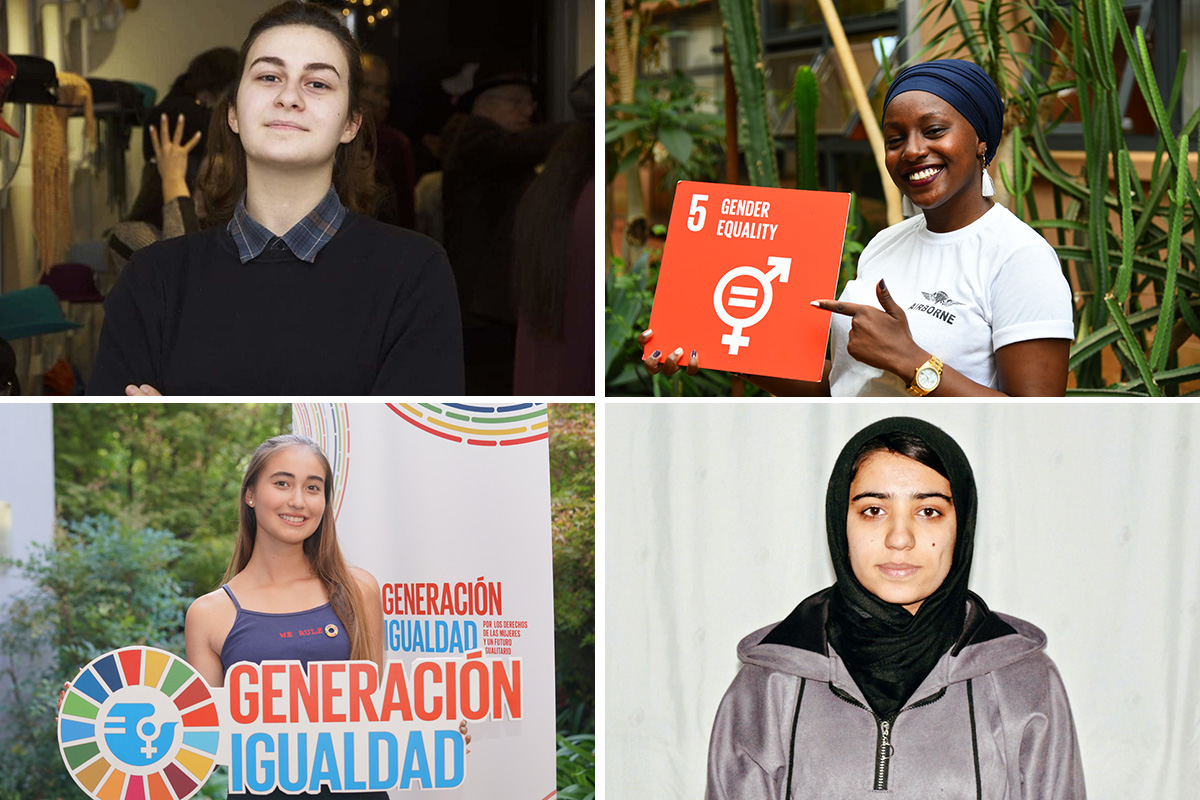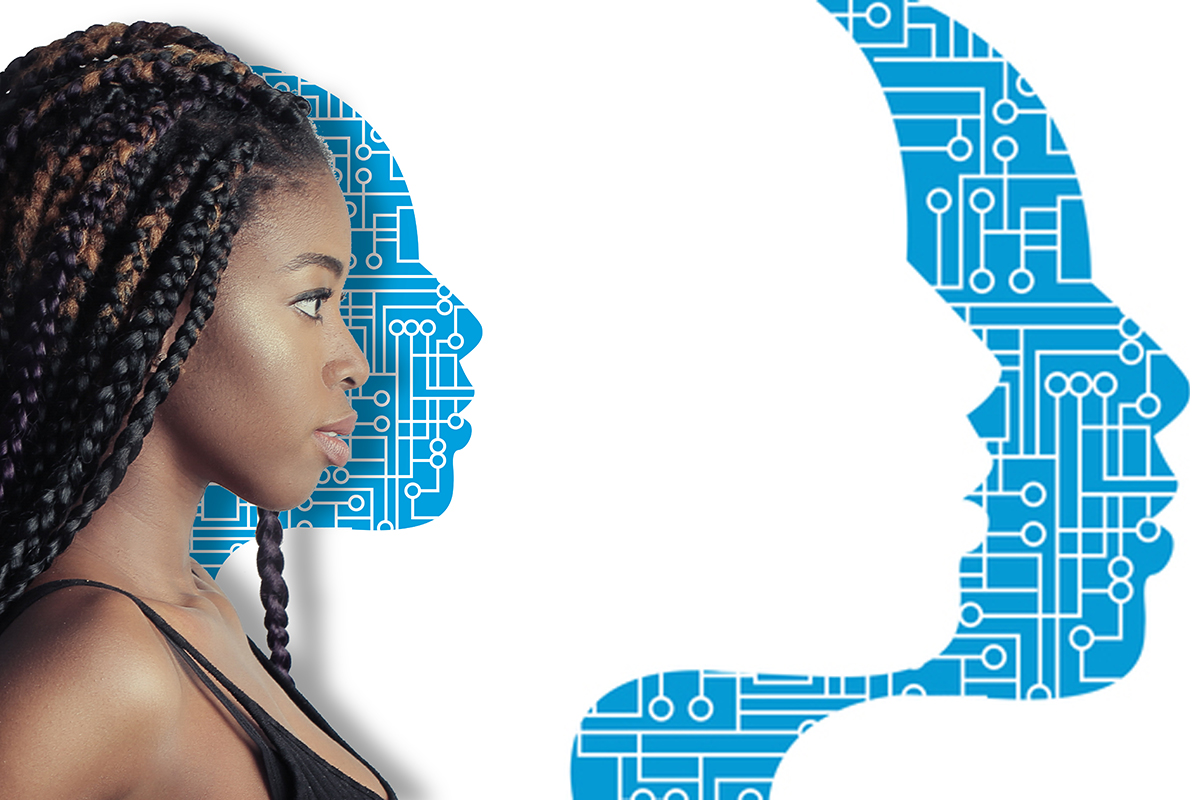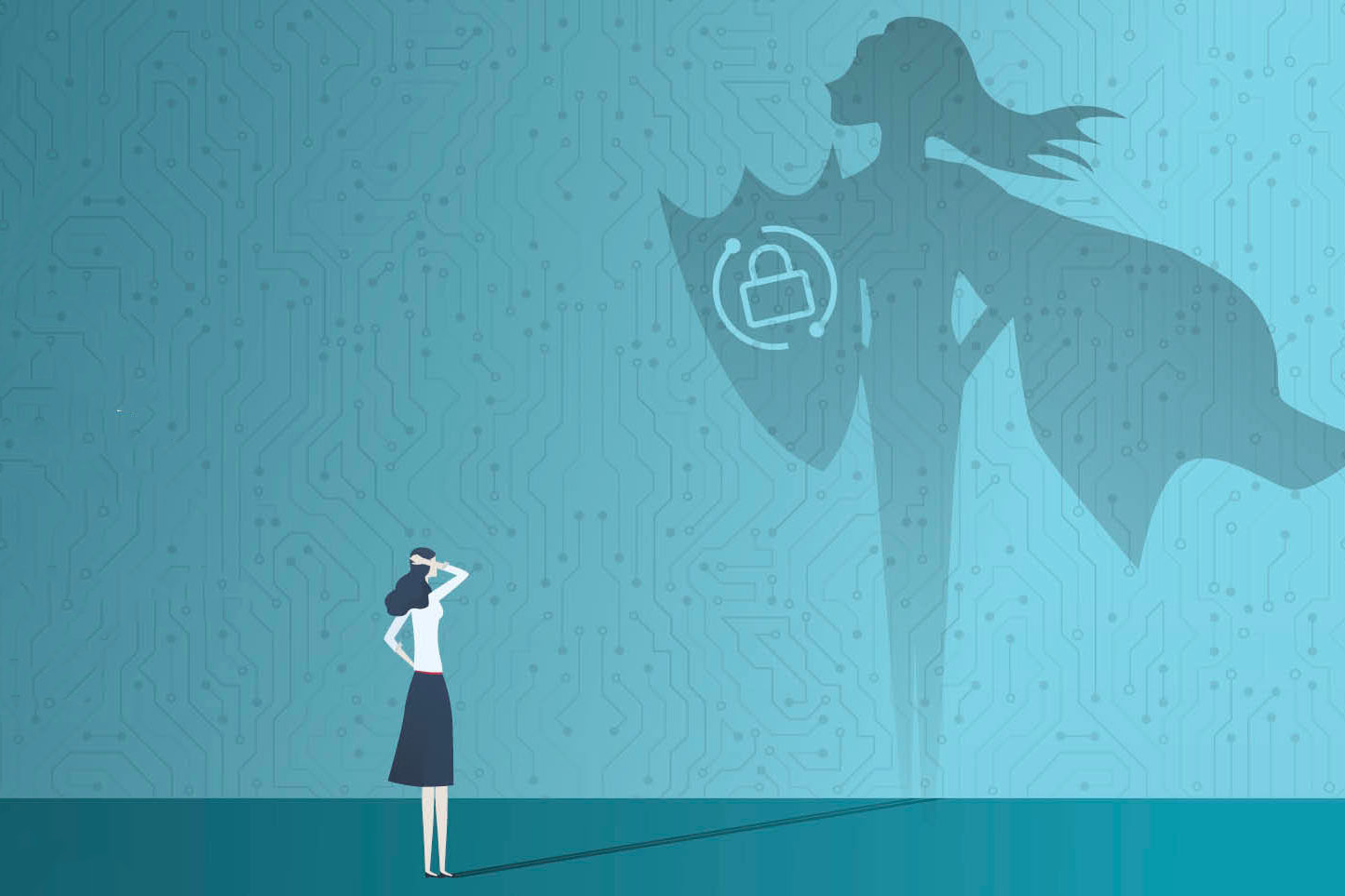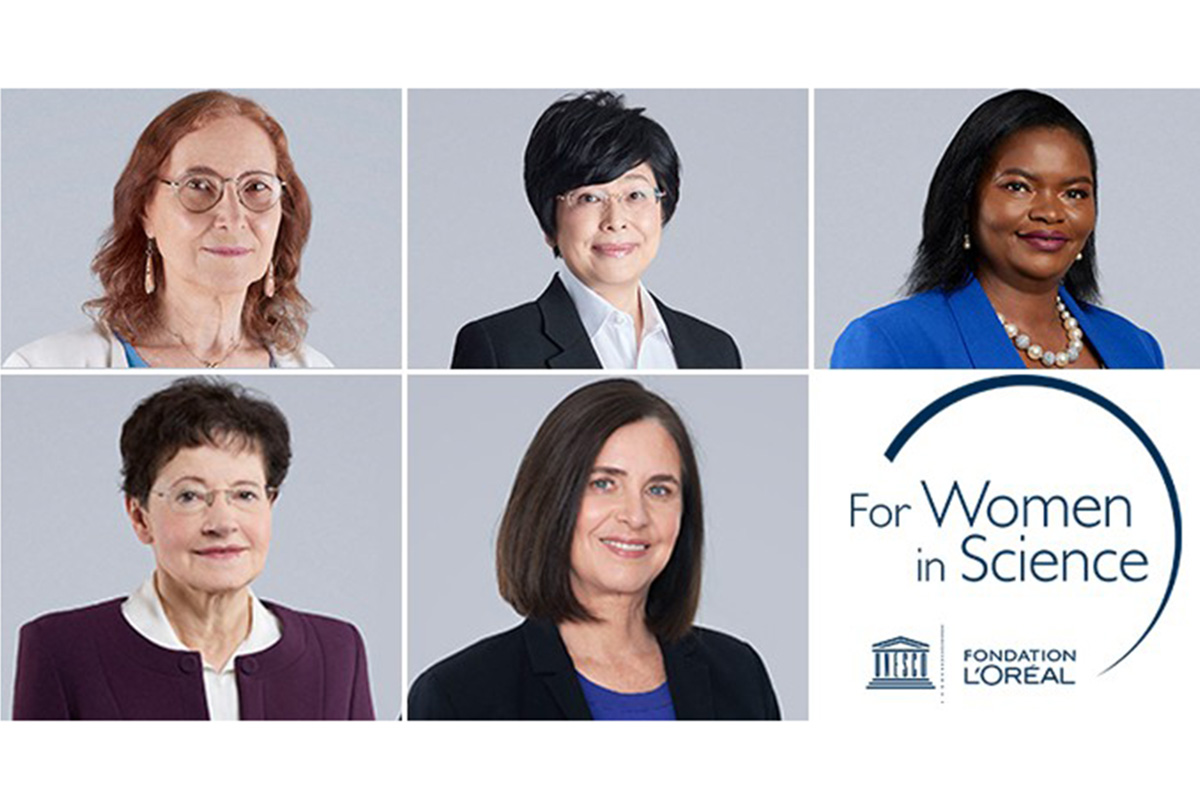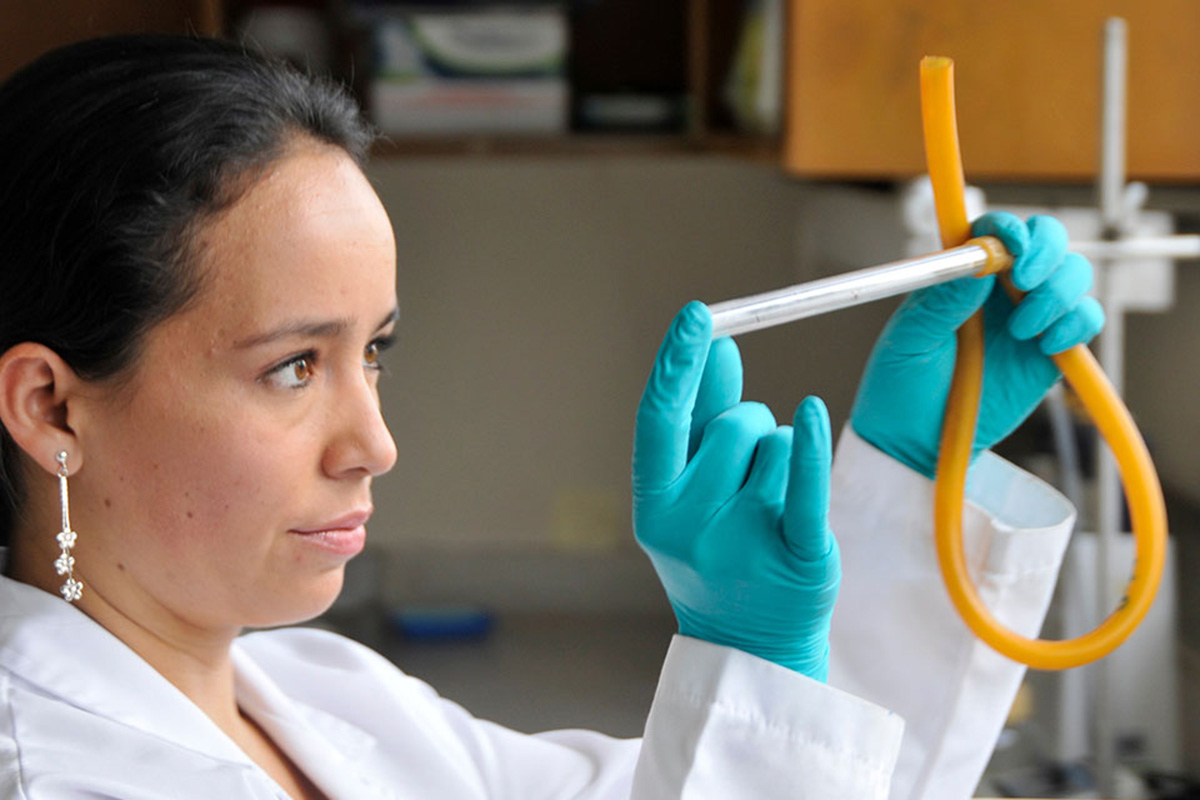While the internet seems like it’s everywhere, more than 3 billion people are still offline. On April 27 the UN General Assembly debate on closing the digital divide and greening the planet’s digital future will be held.
Science and Technology
Girls around the world are using innovation and technology to solve problems, to unite communities and as a force for good and equality. And yet, women and girls are still under-represented in STEM fields. In an increasingly digitized world economy, the gender digital divide has severe repercussion for girls’ and women’s rights. To bridge this gap, at least three things need to happen: facilitate equal access to digital technologies and the internet for girls and women; encourage and invest in girls and women to build their ICT skills; and enable women and girls to take up leadership roles in tech. From creating open-source ventilators in Afghanistan to unifying and amplifying the voices of young activists in Chile, and working to end child marriage in Georgia, here are some girls and young women changemakers who inspire us.
By 2030, two billion people are expected to rely on so-called “assistive” technology aids in their daily lives to eat, see, hear and even get dressed, according to UN patent experts at WIPO, the World Intellectual Property Organization.
It will also be possible to flag when anyone suffering from severe depression or other degenerative brain conditions might need help from a relative or carer, as Irene Kitsara from WIPO tells UN News’s Daniel Johnson.
While girls across the world tend to outperform boys in reading and writing skills, they continue to be under-represented in science, technology, engineering, and mathematics (STEM). Through International Girls in ICT Day (22 Apr), ITU works with partners to build awareness about the gender digital divide, support technology education and skills training, and encourage more girls and young women to actively pursue careers in STEM. Visit the ICT Day Events Map and join the global celebration. Visuals, Ideas and Toolkit are available to share your activities. #GirlsinICT
At the request of governments from all over the world, the IAEA has delivered COVID-19 testing support and equipment to 286 laboratories in 128 countries and territories since March 2020 for the rapid and accurate detection of the disease. The IAEA assistance is to help countries boost their use of real time reverse transcription–polymerase chain reaction (RT-PCR) tests – the most accurate and widely used nuclear-derived method to detect specific genetic material from pathogens, including viruses. The COVID-19 assistance is the biggest emergency operation in the IAEA’s history.
UNESCO marked the International Day of Mathematics, 14 March, under the theme “Mathematics for a Better World." Celebrating the beauty and relevance of mathematics, the Day highlights the essential role played by this discipline in reaching the UN Sustainable Development Goals.
ITU and partners jointly organize the Women in Cyber Mentorship Programme for empowering women in the cybersecurity sector. The programme engages role models and leaders in this field and connects them with talented women worldwide, and it also offers technical and soft skills training courses. It is open to women working in cybersecurity at junior levels, as well as women seeking to enter the cybersecurity workforce. It aims to shift the mentality and encourage women to take on leadership roles in cybersecurity, and promote knowledge sharing of professional best practices.
A few developing nations are exhibiting stronger capabilities to use, adopt and adapt frontier technologies than their per capita GDPs would suggest, but most are lagging behind, according to an index of 158 countries in UNCTAD’s Technology and Innovation Report 2021. Frontier technologies are those that take advantage of digitalization and connectivity. They include artificial intelligence (AI), the internet of things, big data, blockchain, 5G, 3D printing, robotics, drones, gene editing, nanotechnology and solar photovoltaic.
UNESCO and the L'Oréal Foundation honoured five women researchers in the fields of astrophysics, mathematics, chemistry and informatics as part of the 23rd International Prize for Women in Science. UNESCO’s global study on gender equality in scientific research, shows that although the number of women in scientific research has risen to one in three, women remain a minority. Every year women write as many scientific articles as men, but their chances of appearing in prestigious journals are lower, as are their seats on national science academies around the world.
Despite a shortage of skills in technological fields that are driving the Fourth Industrial Revolution, women still only account for 28% of engineering graduates and 40% of graduates in computer science and informatics, according to the forthcoming UNESCO Science Report whose chapter on gender in
It will soon be a year since WHO declared COVID-19 to be a pandemic. By now, every corner of the world has felt the devastating impact of the pandemic, and women and girls in science are on the front lines of response. They are healthcare workers and innovators. They are researching vaccines and pioneering treatments. They are leading us toward a safer world, and inspiring the next generation of girls to be forces of good in science and tech. This 11 February, we’re celebrating International Day of Women and Girls in Science by highlighting just some of the women and girls around the world who have made tremendous contributions during the ongoing crisis.
The outbreak of the pandemic has demonstrated the critical role of women researchers in different stages of the fight against COVID-19. At the same time, the pandemic also had a significant negative impact on women scientists, which need to be addressed by new policies, initiatives and mechanisms to support women and girls in science. Against this backdrop, this year’s celebration of the International Day of Women and Girls in Science will address the theme “Women Scientists at the forefront of the fight against COVID-19”. On 11 February, join us online to celebrate the Day’s 6th year.
ITU is inviting contributions for special issues of the ITU Journal on Future and Evolving Technologies, which provides complete coverage of all communications and networking paradigms.
UNIDO has contributed to a series of pilot online training workshops to build national capacity on science, technology and innovation in developing countries.
New technologies like artificial intelligence, machine learning, robotics, big data, and networks are expected to revolutionize production processes, but they could also have a major impact on developing economies. IMF research finds that new technology risks widening the gap between rich and poor countries by shifting more investment to advanced economies where automation is already established.


